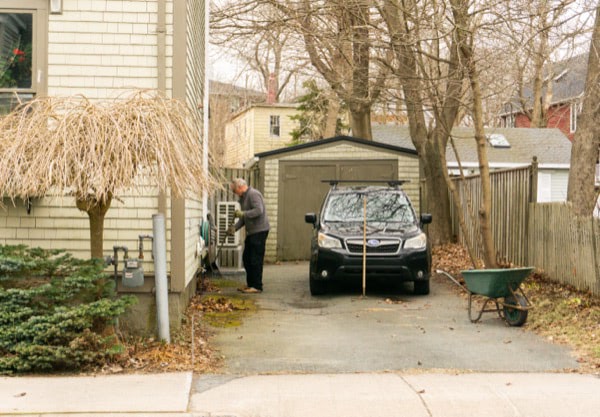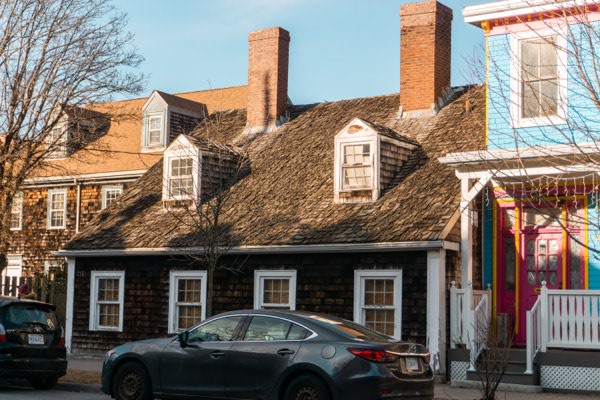Do you need to consider minimizing your spending? Here are some tips to help you curb your spending habits this year!

Should you consider buying a fixer-upper?
Have you ever thought about buying a fixer-upper home? Purchasing any kind of house takes a lot of time and work, but this property type takes that meaning to a whole new level. For some, the idea of redoing a house from scratch is a dream, while for others, it’s an absolute nightmare. Buying this type of home can either be a great move or a terrible idea – depending on your personal preferences.
As with everything else in real estate, fixer-uppers have their own list of pros and cons. Make sure you consider all arguments for and against this property type before you make a decision to purchase one. Here are a few things you should take into account if you’re thinking about taking on this type of project.
Pros of buying a fixer-upper
Big savings
Obviously, a fixer-upper will be cheaper to buy than a move-in ready home. A house in need of some serious repairs will not be selling at current market value, so you can expect to spend much less when you purchase a fixer-upper. There’s no way to compare exactly how much you might save, as it largely depends on location and home size, but you can count on spending less.
Tying in with savings is the advantage of building home equity. With the repairs you’ll have to make on a fixer-upper, this will increase the value of the house. If you plan to resell the home in the near future, this can be a quick way to get a nice return on your investment. As opposed to slowly building equity by living in a home for years, buying and selling a fixer-upper has a faster payoff.
Secure your dream location
Fixer-upper homes can be your key to getting into the market, and specifically getting to live in the area you want. If you want to live in a traditionally busy and pricey spot, like a city’s downtown core, fixer-uppers will have prices more like those in cheaper, less popular areas. You’re more likely to be able to afford a downtown home if you invest in a fixer-upper. On the other hand, you might also want to escape an expensive city area. In this case, buying a fixer-upper in a rural location will save you even more money if you secure that dream spot.
Since today’s housing market is so intense, you might experience a bit of relief if you go after this type of home. Fewer people are interested in fixer-uppers, so there will likely be less competition for you.
Customize your home
Obviously, buying a fixer-upper means you’ve committed to taking on some serious renovations. When you’re starting from scratch like this, it can present a huge advantage in terms of making your house feel like a home. You get to completely redesign your home, adding elements to reflect your personal preferences. You can design your dream kitchen or master bathroom without any barriers. Many people enjoy their houses more when they have fresh renovations that feel modern and personal, which you can take advantage of with a fixer-upper.
Cons of buying a fixer-upper
As good as it sounds to invest in a fixer-upper, this property type comes with its drawbacks as well. Here are a couple downsides of this investment, and important things to consider before you make this purchase.
Prepare for work
Of course, a fixer-upper is going to be a big time commitment, and a lot of work. You’ll get to enjoy the end result, but it’s a work in progress and the end can feel so far away. Whether you do the work yourself or hire professionals, there will be tons to do, and it will take a long time. Consider whether you have somewhere else you can live while these renovations are underway, and whether you’re prepared to relocate more than once. You’ll feel a bit untethered for a while, which can be a deal breaker for many.
Also remember that even the best-laid plans run into issues. This means you can expect delays – this isn’t to be pessimistic, but more so realistic. Even with inspections and full preparations, unpredictable problems can and do occur during large projects like these. Your renovations may experience setbacks, and you need to be flexible with that. Long story short, buying a fixer-upper is a big time investment, and no timeline is definitive.
Big spending
Wait, didn’t we just say you can expect big savings from buying a fixer-upper? Yes, and this is true as long as you’re talking about the initial purchase price of the house. However, don’t forget about all the costs of actually dealing with the fixes.
Renovations are expensive. Anyone who has done them can tell you. With this type of home, you’re looking at some major renovations and upgrades. You will be spending tons of money making your home not only livable, but also up to your standards. Even with a budget, it’s nearly impossible to accurately calculate the complete costs of this project. That’s not to say you shouldn’t create a budget to keep yourself in check! You should just be prepared to go over it, and have the funds to cover these costs.
Fixer-uppers can be the dream investment for the right owner, and a terror for the wrong one. Make sure you take all these factors into account before you decide to commit to this type of property. If you have questions about securing a mortgage for a home, get in touch with us at Clinton Wilkins Mortgage Team! You can call us at (902) 482-2770 or contact us here.


